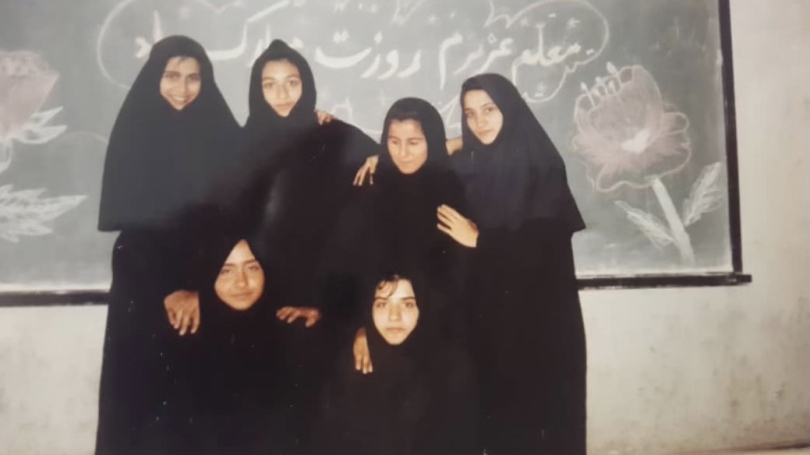
- About
- Departments & Programs
- Faculty Resources
- Governance
- Diversity
- News
Back to Top Nav
Back to Top Nav
Back to Top Nav
Back to Top Nav
The play by Armita Mirkarimi '25, a winner of the 2022 Frost and Dodd Playwriting Competition, opens Jan. 27 at Sudikoff Hall.
Growing up in Iran, Armita Mirkarimi '25 discovered a love of storytelling by breaking the rules with her mother.
"There were books you could read and books you couldn't read," says Mirkarimi, a government and English literature major. "My mom was like, 'Who cares about the rules?' And she would read me things like Mary Shelley's Frankenstein and Hamlet."
Mirkarimi began to understand even more about censorship in Iran when her family immigrated to southern California and at age 8, she went to her first public library.
"I was flabbergasted by the idea of a public library. I couldn't believe there was a place to go, for free, and read anything you like. I would spend hours and hours there. Since then, I've always been interested in telling and reading uncensored stories," Mirkarimi says.
That theme of censorship in Iran is at the heart of Mirkarimi's play Noon Panir in the Dark, which will premiere this Friday, Jan. 27, in Sudikoff Hall. The play won the 2022 Ruth and Loring Dodd Playwriting Competition Award at the Theater Department's 95th annual Frost and Dodd Student Play Festival. Each year, two Frost contest play submissions are selected to be produced as staged readings, and the winning play is mounted as a fully staged production.
"Noon Panir is a touching and important piece by a very promising young playwright," says Associate Professor of Theater Jamie Horton, one of the judges. "It was clear to the judges that this was a unique and talented voice."
Noon Panir in the Dark portrays five teenage girls locked inside a dark classroom while loud explosions can be heard in the distance. Together and terrified, they each find their own way to adapt as they cook a Persian bread-and-cheese classic: noon panir.
"It's a very dark classroom, and they're grappling with big ideas about religion and politics and they're asking questions like 'How do we live in a censored environment?'" Mirkarimi says. "But they're also grappling with the censorship of one of their physical senses. I've taken the light away and they must adapt to losing their sight."
The play's classroom setting lends itself well to the actual classroom in Sudikoff where Noon Panir will be performed. Sudikoff Hall is one of several new theater venues made available during renovations to the Hopkins Center for the Arts.
Horton says they were able to find the perfect director for Noon Panir, Sharifa Yasmin, who has significant experience in staging theater in "found spaces" and focuses on work that gives voice to marginalized communities. Yasmin, an Egyptian American, was strongly drawn to the themes of Mirkarimi's play.
Mirkarimi wrote Noon Panir in the Dark during a fall '21 playwriting class. She didn't know how timely her play's theme of censorship in Iran would be, given the protests in Iran underway since September 2022.
People in Iran and around the world have been calling for change after a young woman named Mahsa Amini, 22, died in police custody. She was arrested by Iran's "morality police," which enforces women's dress codes. Amini was reportedly taken into custody for not wearing a hijab properly.
"One of the characters in Noon Panir takes off her hijab. That means something completely different now than it did when I first wrote it," Mirkarimi says. "The bravery of the men and women in Iran right now following the death of Mahsa Amini does not escape me for one minute. They're truly risking their lives every day by protesting, and they are the true heroes."
The experience of writing and seeing her work come to life has been exhilarating for Mrikrami. She hopes that, at the very least, the audience walks away with a newfound curiosity about Iran, Persian women, and one of her favorite snacks.
"I hope the audience will look up a name or an idea or something they heard in the play, and see, hopefully, the Iranian people in a more nuanced, complex point of view," Mirkarimi says. "These people are three-dimensional, and they're complex, and they have stories. They're getting censored, and they're getting killed every day. If the audience can understand the depth of that, then I've done my job."
Noon Panir in the Dark runs from Friday, Jan. 27 through Monday, Jan. 30. (The event is free but tickets are required.)